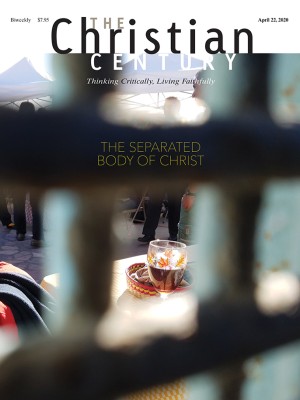Looking for constancy when routines are disrupted
I’ve been thinking about a French horn teacher I once had.

Twelve years ago, I decided to revive my interest in the French horn by signing up for private lessons. What better way to end the illusion of being a horn player than to get serious and put money behind all the talk?
With the eagerness of a fifth-grade band student, I loaded up my favorite practice books into the dusty horn case and headed for the teacher’s studio. I chose this particular teacher because he was the principal horn player in the symphony. We chatted as he inspected my instrument. After handing it back to me, he asked me to play a sustained note. I did so, only to hear him ask for the same thing over and over again. “As steady and long as you can this time,” he would say repeatedly. I was eager to show off my range and speed. He wanted to hear single notes played for long stretches of time.
I wrote my $75 check for this half hour session and asked him if I should practice chord progressions for next time. He replied, “No, just practice long notes and good breath support.” When my second lesson assumed the same pattern as the first, I decided I was done paying for this sophisticated method of learning.
Read our latest issue or browse back issues.
After that rather underwhelming experience, I thought very little about my horn until Barry Tuckwell died earlier this year. In reading the obituary of this world-class horn player—a childhood idol of mine—I came across a link that inspired a flashback. “There are a lot of people who can play loud and fast,” Tuckwell once told the New York Times. “But it is very difficult to play one note. In fact, I would like to institute a competition [in which] each participant would be asked to play only one note. . . . It would be a good exercise.” Tuckwell was highlighting the very reality my horn teacher had tried to communicate before I cut my private lessons short: the value of constancy.
I’ve been thinking a lot about constancy in recent days. The initial stay-at-home decree from health officials may have felt cozy or even exotic at the outset, especially to Americans accustomed to being on the go. But that sentiment fast morphed into waves of personal anxiety and disequilibrium as huge swaths of the country settled into extended isolation. With daily rhythms for life and work now disrupted, people with serious financial, medical, and relational constrictions are feeling especially exhausted.
I’ve had to face my own disorientation since the cancellation of in-person worship has become more than a momentary phenomenon. I’m lost on Sunday mornings as I try to navigate between online worship, reading the newspaper, texting colleagues, and lounging around within the confines of my home. It’s like having one’s circadian rhythm interrupted, only much more significantly than with a flight across time zones. The clock that regulates my spiritual metabolism has spent 60 nonstop years calibrating itself to weekly worship. I realize that people who don’t worship in a congregation have no idea what I’m talking about. But for me, this arrhythmia is huge.
Constancy isn’t just a virtue in horn playing. Spiritually speaking, it’s that God-inspired equanimity that allows us to find our way through turmoil. If I don’t get my bearings back soon, I may just have to pull out the horn and give myself a lesson.
A version of this article appears in the print edition under the title “Seeking constancy.”






